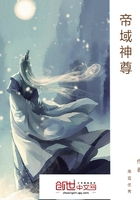The news of his advent and fragments of his story spread so quickly through the barracks that mess after mess swarmed down from the upper moors and out into the roadway to see Bobby.Private McLean stood in the door, smoking a cutty pipe, and grinning with pride in the merry little ruffian of a terrier, who met the friendly advances of the soldiers more than half-way.Bobby's guardian would have liked very well to have sat before the canteen in the sun and gossiped about his small charge.However, in the sergeant's sleeping-quarters above the mess-room, he had the little dog all to himself, and Bobby had the liveliest interest in the boxes and pots, brushes and sponges, and in the processes of polishing, burnishing, and pipe-claying a soldier's boots and buttons and belts.As he worked at his valeting, the man kept time with his foot to rude ballads that he sang in such a hissing Celtic that Bobby barked, scandalized by a dialect that had been music in the ears of his ancestors.At that Private McLean danced a Highland fling for him, and wee Bobby came near bursting with excitement.When the sergeant came up to make a magnificent toilet for tea and for the evening in town, the soldier expressed himself with enthusiasm.
"He iss a deffle of a dog, sir!"
He was thought to be a "deffle of a dog" in the mess, where the non-com officers had tea at small writing and card tables.They talked and laughed very fast and loud, tried Bobby out on all the pretty tricks he knew, and taught him to speak and to jump for a lump of sugar balanced on his nose.They did not fondle him, and this rough, masculine style of pampering and petting was very much to his liking.It was a proud thing, too, for a little dog, to walk out with the sergeant's shining boots and twirled walkingstick, and be introduced into one strange place after another all around the Castle.
From tea to tattoo was playtime for the garrison.Many smartly dressed soldiers, with passes earned by good behavior, went out to find amusement in the city.Visitors, some of them tourists from America, made the rounds under the guidance of old soldiers.The sergeant followed such a group of sight-seers through a postern behind the armory and out onto the cliff.There he lounged under a fir-tree above St.Margaret's Well and smoked a dandified cigar, while Bobby explored the promenade and scraped acquaintance with the strangers.
On the northern and southern sides the Castle wall rose from the very edge of sheer precipices.Except for loopholes there were no openings.But on the west there was a grassy terrace without the wall, and below that the cliff fell away a little less steeply.The declivity was clothed sparsely with hazel shrubs, thorns, whins and thistles; and now and then a stunted fir or rowan tree or a group of white-stemmed birks was stoutly rooted on a shelving ledge.
Had any one, the visitors asked, ever escaped down this wild crag?
Yes, Queen Margaret's children, the guide answered.Their father dead, in battle, their saintly mother dead in the sanctuary of her tiny chapel, the enemy battering at the gate, soldiers had lowered the royal lady's body in a basket, and got the orphaned children down, in safety and away, in a fog, over Queen's Ferry to Dunfirmline in the Kingdom of Fife.It was true that a false step or a slip of the foot would have dashed them to pieces on the rocks below.A gentleman of the party scouted the legend.Only a fox or an Alpine chamois could make that perilous descent.
With his head cocked alertly, Bobby had stood listening.Hearing this vague talk of going down, he may have thought these people meant to go, for he quietly dropped over the edge and went, head over heels, ten feet down, and landed in a clump of hazel.A lady screamed.Bobby righted himself and barked cheerful reassurance.The sergeant sprang to his feet and ordered him to come back.
Now, the sergeant was pleasant company, to be sure; but he was not a person who had to be obeyed, so Bobby barked again, wagged his crested tail, and dropped lower.The people who shuddered on the brink could see that the little dog was going cautiously enough; and presently he looked doubtfully over a sheer fall of twenty feet, turned and scrambled back to the promenade.He was cried and exclaimed over by the hysterical ladies, and scolded for a bittie fule by the sergeant.To this Bobby returned ostentatious yawns of boredom and nonchalant lollings, for it seemed a small matter to be so fashed about.At that a gentleman remarked, testily, to hide his own agitation, that dogs really had very little sense.The sergeant ordered Bobby to precede him through the postern, and the little dog complied amiably.
All the afternoon bugles had been blowing.For each signal there was a different note, and at each uniformed men appeared and hurried to new points.
Now, near sunset, there was the fanfare for officers' orders for the next day.
The sergeant put Bobby into Queen Margaret's Chapel, bade him remain there, and went down to the Palace Yard.The chapel on the summit was a convenient place for picking the little dog up on his way to the officers' mess.Then he meant to have his own supper cozily at Mr.Traill's and to negotiate for Bobby.
A dozen people would have crowded this ancient oratory, but, small as it was, it was fitted with a chancel rail and a font for baptizing the babies born in the Castle.Through the window above the altar, where the sainted Queen was pictured in stained glass, the sunlight streamed and laid another jeweled image on the stone floor.Then the colors faded, until the holy place became an austere cell.The sun had dropped behind the western Highlands.
Bobby thought it quite time to go home.By day he often went far afield, seeking distraction, but at sunset he yearned for the grave in Greyfriars.The steps up which he had come lay in plain view from the doorway of the chapel.
Bobby dropped down the stairs, and turned into the main roadway of the Castle.















